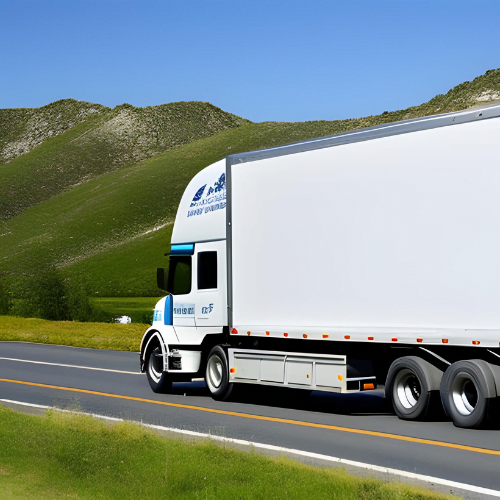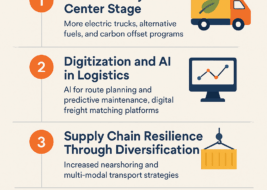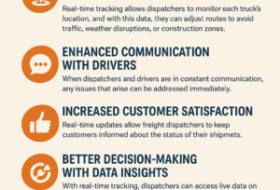Choosing the right box truck is a critical decision for businesses and individuals involved in transportation and logistics. Whether you’re starting a new delivery service, expanding your fleet, or replacing an existing truck, selecting the appropriate box truck can significantly impact your operations and success. In this guide, we will explore the essential factors to consider when choosing the right box truck to meet your specific needs.
- Assessing Your Cargo Requirements
Before diving into the world of box trucks, it’s crucial to assess your specific cargo requirements. Consider the types of goods you’ll be transporting, their dimensions, and weight. Understanding your cargo needs will help you determine the appropriate box size, loading capacity, and other essential features. - Determining the Right Size and Capacity
Box trucks come in various sizes, from small vans to large commercial vehicles. Choosing the right size depends on your cargo requirements and the nature of your business. Ensure the box truck you select can comfortably accommodate your cargo without overloading it. - Choosing the Chassis and Engine Type
Box trucks are built on different chassis types, such as cutaway or cab-over. Each type offers unique advantages in terms of maneuverability and storage space. Additionally, consider the engine type and power, as it affects the truck’s performance and fuel efficiency. - Automatic vs. Manual Transmission
Decide whether you prefer an automatic or manual transmission box truck. Automatic transmissions offer convenience and ease of use, especially in heavy traffic, while manual transmissions provide better control and can be more fuel-efficient in some cases. - Consider Fuel Efficiency
Fuel costs can significantly impact your overall expenses. Look for box trucks with good fuel efficiency to optimize your operations and reduce long-term expenses. Modern box trucks often come with advanced technologies that enhance fuel economy. - Evaluating Safety Features
Safety is paramount for any vehicle, especially for those involved in commercial transport. Look for box trucks equipped with modern safety features such as airbags, anti-lock braking systems (ABS), stability control, and rearview cameras. - Exploring Maintenance and Service Costs
Box trucks, like any vehicle, require regular maintenance and servicing. Research the expected maintenance costs and the availability of service centers for the specific truck models you are considering. Opt for brands with a reputation for reliability and cost-effective maintenance. - Box Truck Financing and Budgeting
Determine your budget and explore financing options. Buying a box truck outright, leasing, or opting for financing are common choices. Assess the financial impact and choose the option that aligns with your long-term goals. - Emission Standards and Environmental Impact
As environmental concerns grow, choosing a box truck with lower emissions can be advantageous. Explore options with modern engines that adhere to emission standards and have a reduced impact on the environment. - Considering Resale Value
If you plan to upgrade or replace your box truck in the future, consider the resale value of the model you choose. Resale value can vary based on brand reputation, popularity, and overall condition. - Reviewing Customer Reviews and Testimonials
Before finalizing your decision, read customer reviews and testimonials about the box truck models you are interested in. Real-world experiences from other users can provide valuable insights and help you make an informed choice. - Assessing Manufacturer Warranty and Support
A reliable manufacturer warranty and after-sales support are crucial for any vehicle purchase. Research the warranty terms and customer support provided by the box truck manufacturers to ensure peace of mind. - Used vs. New Box Trucks
Consider whether a new or used box truck suits your needs best. While new trucks offer the latest features and warranties, used trucks can be more budget-friendly. Conduct a thorough inspection of used trucks and consider their mileage and maintenance history. - Customization and Additional Features
Some manufacturers offer customization options for box trucks to better suit your business needs. Explore additional features, such as liftgates, interior shelving, or refrigeration capabilities, based on your cargo requirements.
Conclusion
Selecting the right box truck involves careful consideration of various factors, from cargo requirements to budgeting and environmental impact. Take your time to research and compare different models, considering both short-term needs and long-term goals. A well-chosen box truck can enhance your business’s efficiency and contribute to its overall success.
FAQs
What is the average lifespan of a box truck?
The average lifespan of a box truck depends on factors like maintenance, usage, and road conditions. Generally, well-maintained box trucks can last up to 10 to 20 years.
Is it better to buy or lease a box truck?
The decision to buy or lease a box truck depends on your financial situation and business requirements. Leasing offers lower upfront costs and potential tax benefits, while buying provides long-term ownership and potential resale value.
Are there any weight limits for box trucks?
Yes, box trucks have weight limits specified by the manufacturer and legal regulations. Exceeding these limits can lead to safety hazards and legal consequences.
Can box trucks be used for long-distance transportation?
Yes, box trucks are suitable for long-distance transportation, especially for goods and cargo that require protection from the elements.
What are the advantages of a cab-over box truck?
Cab-over box trucks provide better visibility and maneuverability compared to conventional designs, making them ideal for urban driving and navigating tight spaces.








